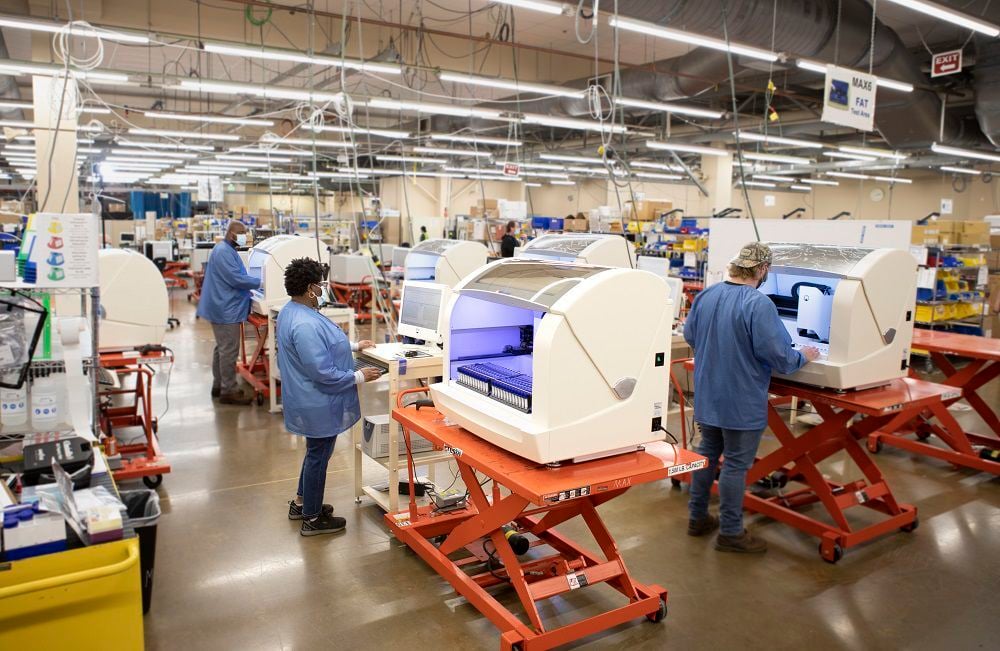The company set to build a medical device sterilization facility in southeast Tucson has reversed course on its intentions to use a hazardous gas at the center and instead plans to use another sterilization method using electron beam technology.
The Pima County Department of Environmental Quality issued an air quality permit to Becton, Dickinson and Company (BD) in May to operate a 140,000-square-foot facility at 7345 E. Valencia Road, near South Kolb Road. The facility was set to use ethylene oxide, a colorless, highly flammable gas that the U.S. Environmental Protection Agency classifies as a human carcinogen, to sterilize medical equipment.
Several local government officials and community members expressed concern about the use of the material at the site that neighbors the Davis-Monthan Air Force Base and an Amazon distribution facility over the dangers any unmonitored release of ethylene oxide would pose.
In January 2022 , the council passed a motion offered by Steve Kozachik to oppose the facility’s construction over the use of ethylene oxide and uncertainty of transporting the chemical throughout Tucson. The city sent sent a letter to BD informing the company it’s not welcome in Tucson without a risk assessment demonstrating Tucson Fire can adequately respond to a catastrophic event.
Troy Kirkpatrick, a spokesperson for BD, said the pushback was not what led the company to no longer use ethylene oxide in Tucson, but rather that “Tucson made sense as a location for additional capacity” for electron beam technology.
Also called e-beam technology, the process uses a stream of highly energized electrons to disrupt the DNA chains of any microorganisms and sterilize equipment in its packaging.
“As we looked at our network, we identified the need for additional e-beam capacity, as well as (ethylene oxide), and determined Tucson would be better suited for e-beam,” Kirkpatrick said in an email. “We still intend to build a new (ethylene oxide) sterilization facility in a location that is more centralized to multiple BD manufacturing facilities. While we haven’t announced the location, we can confirm that it will not be in Arizona.”
While construction on the ethylene oxide facility was originally slated to begin in the summer of 2022, Kirkpatrick estimates the new e-beam facility will likely be built some time in 2023.
The process will require a new air quality permit from the county “since there will be emissions of various pollutants including ozone and nitrogen oxides,” according to county memo. However, it’s unclear exactly how the process would work or how any pollutants would be contained until BD applies for a new permit.
The county’s environmental department is legally required to issue air quality permits to companies that meet a certain set of federal and state standards. Under its previous permit, BD could emit no more than 709 pounds of ethylene oxide annually, and it claims to have control measures that eliminate 99.95% of the gas.
Kozachik said he considers the change to be a “win for the community,” especially given events such as the nitric acid spill from a truck rollover on Interstate 10 near Kolb Road on Feb. 14, and the preceding Ohio train derailment on Feb. 3 that released vinyl chloride into the surrounding community.
“Every one of those demonstrates that communities nationwide and including Tucson are not prepared to address the environmental fallout from significant chemical spills,” the council member said. “If there is a rollover — that’s not just a hypothetical, because it happens in our real world — then how are you going to control it?”
During a conversation debriefing the city council on the nitric acid spill on March 21, City Attorney Mike Rankin said while localities have limited authority over the transportation of toxic chemicals in their jurisdictions, Tucson petitioned the federal transportation department to designate acceptable travel routes for ethylene oxide in anticipation of BD using large quantities of the chemical in the city.
“It actually looks like we might be successful in getting the ability to designate acceptable travel routes or truck routes for (ethylene oxide),” Rankin told the council. “But that is not a process that would allow us to just gain general authority throughout the city for the regulation of the transportation of hazardous materials.”
While the city’s designation of transit routes would be tied to specific substances, Kozachik is encouraged by the responsiveness of the federal government and potential for future local control over toxic material transportation.
“I think that we showed, not only for the city of Tucson, but for every other jurisdiction in the country, we ought to be petitioning the federal government each time there’s a toxic substance that’s going to be rolling through jurisdictions, and let the local population have that seat at the table,” he said. “I think that we did the rest of the country a service by raising that flag.”
One cool day.






